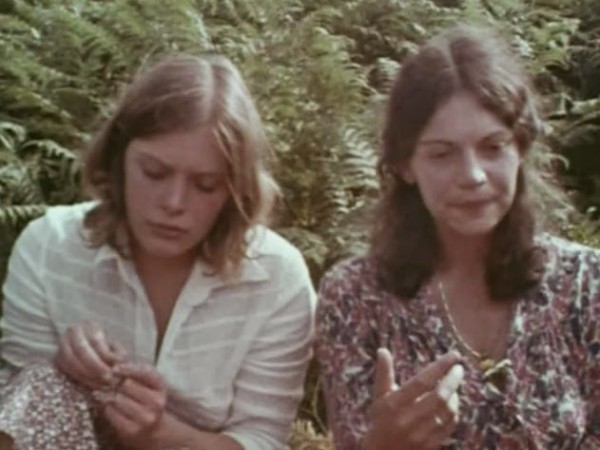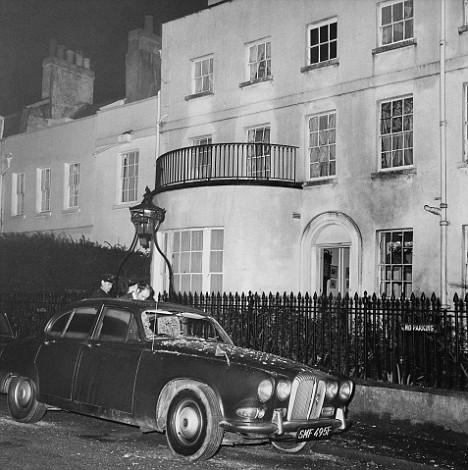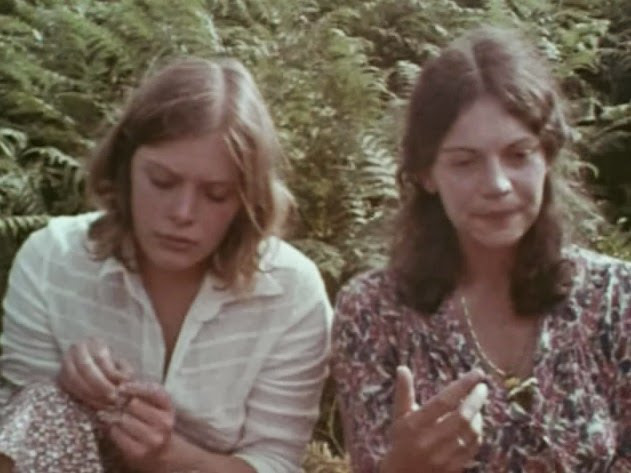Look back in anger | Martin Bright
Thu 28 May 2015 |
Our Plays, The Bigger Picture
Excerpts from journalist Martin Bright’s investigation for The Observer which includes interviews with two members of the Angry Brigade.
Look back in anger
Martin Bright
The Observer, Sunday 3 February 2002
They were the British Baader Meinhof, 70s icons of the radical left. Thirty years ago, the Angry Brigade launched a string of bombing attacks against the heart of the British Establishment. No one was killed, but after a clampdown on the ‘counter culture’ and amid accusations of a Bomb Squad ‘fix’, four radicals were sentenced to 10 years in prison. Now, for the very first time, two of the Angries break their vow of silence.
…
This year [2002] is the 30th anniversary of the Angry Brigade trial, which lasted from May to December in 1972. [John] Barker, [Jim] Greenfield, [Hilary] Creek and [Anna] Mendleson all received 10-year sentences, reduced from 15 after pleas of clemency from the jury, for ‘conspiring to cause explosions likely to endanger life or cause serious injury to property’. The other four defendants were acquitted. Jake Prescott, a burglar and heroin addict from Fife, who got mixed up in the politics of the Angry Brigade, had already been sentenced to 15 years in November 1971, although this was later reduced to 10.
…
The reason the story of the Angry Brigade has never fully been told is that none of the main protagonists have ever spoken about what really happened all those years ago. A collective vow of silence was taken by those involved in the trial. That same agreement was also honoured by the defendants that were acquitted and the substantial network of friends that made up the Stoke Newington Eight defence committee. Now, for the first time, one of them has broken that wall of silence. Hilary Creek, who was 22 at the time of her arrest, believes the time has come to scotch some of the more lurid myths that surrounded them.
‘I was sick of sitting by and waiting passively for the next slap in the face from the mass media, who rarely reported anything but the prosecution case,’ she says. ‘But I thought I didn’t really have the right to grumble if I didn’t try to do something to rectify the situation myself.’

Hilary Creek (left) with Anna Mendelssohn
The Angry Brigade was no joke for Creek, the youngest of the defendants, who like Anna Mendelssohn and her partner John Barker, came from a solidly middle-class background. Her father worked in the City and she attended Watford Grammar School where she discovered a talent for economics. At Essex University she became involved in the revolutionary politics that dominated the life of the campus and eventually drew her into open conflict with the British state. She is central to the story of the Angry Brigade. In the week before her arrest, she travelled to Paris where she met representatives of the French underground movement in the Latin Quarter. The police alleged she also collected the 33 sticks of gelignite found in the flat at Amhurst Road.
I have met Creek on two occasions and what is most remarkable about her is that her politics have remained largely unchanged over 30 years.
She supports the anti-globalisation protesters, but stays away from demonstrations, knowing it would do the cause no good if it was associated with a convicted terrorist. She is almost unrecognisable from the old photographs and she likes it that way. Her hair is shorter now and a lifetime’s smoking has taken its toll. On top of that, the lights of her isolation cell in Holloway caused permanent damage to her eyes. She has now recovered from the anorexia she developed in prison, but still talks passionately about the damage the experience inflicted.
‘Anyone who says that prison rehabilitates people is insane,’ she says. ‘A long prison sentence completely stops you being able to lead a normal life. When I first came out I had to teach myself to do the most ordinary things, like going to the shops.’ She believes she was lucky to survive the prison experience at all. She was threatened with being sent to a secure hospital and was only saved by the intervention of a psychologist. ‘They said they could fix it so I would be detained “at Her Majesty’s pleasure”,’ she says. ‘That was terrifying. I would still have been inside now.’
While in Holloway, she was often kept in isolation, or in a wing with other long-term prisoners, including Myra Hindley, who became a good friend. When she developed anorexia nervosa she was finally released for hospital treatment. But the press wouldn’t leave her alone. The Mail splashed the scandal of the ‘bomb girl’ who had been released into the community across its front page.

Home Secretary Robert Carr’s house was bombed by the Angry Brigade
MPs demanded an immediate inquiry, but Home Secretary Robert Carr, whose house had been bombed by the Angry Brigade, refused to bow to pressure and allowed her to continue treatment. When she was let out on parole in 1977, her conditions included a ban on leaving the town where she lived for any reason, having anyone to stay in her house or any political activity of any kind. When she first came out, she and her family received anonymous death threats and after completing a degree at Swansea University she began to do research which took her abroad, where she finally settled.
…
It is tempting to look upon the Angry Brigade convictions as miscarriages of justice, because we know what happened shortly afterwards in the Guildford Four and Birmingham Six cases. What can be said is that the police’s ham-fisted investigation made it look like they were fitting people up. Thankfully, the matter is clarified in a review by John Barker of a book about the Angry Brigade: ‘In 1971-72, I was convicted in the Angry Brigade trial and spent seven years in jail. In my case, the police framed a guilty man.’ Barker also articulates the criminal naivete of the Angry Brigade’s actions. ‘For one thing we were libertarian communists believing in the mass movement and for another we were not that serious. Put baldly like this it sounds especially arrogant. Yeah, man, we never took it seriously anyway: what I mean is that like many people then and now we smoked a lot of dope and spent a lot of time having a good time.’
Jake Prescott knows a lot about having a good time, as only someone who has had some genuinely bad times can. He is sitting in his Hackney home, just a few minutes, walk from Amhurst Road, every bit the working-class ghost at the Angry Brigade’s bourgeois feast. Put into an orphanage at seven, convicted of his first crime at 11 (stealing a box of paints), and a drug addict and burglar by the time he was in his teens, Prescott didn’t stand a chance. But in the mid-60s, when he was sent to Albany Prison for possession of a firearm, he discovered the revolutionary politics of the black civil rights movement. ‘I took it all to heart. I had no objectivity. So when I got out of jail I thought, “London here I come.” I wanted to live it.’
In prison, he’d met Ian Purdie, a young revolutionary who was serving nine months for throwing a petrol bomb at an army recruitment office. Through Purdie he was introduced to a commune in Grosvenor Avenue, Islington, with close links to the Angry Brigade. But Prescott got in too deep with the revolutionaries and one day in January 1972 found himself in a house in Notting Hill agreeing to address three envelopes for Angry Brigade communiqués. Prescott says he had no idea the contents of the envelopes were claims of responsibility for an attack on the Barnet home of Robert Carr that night.
Prescott read about the bombing in the papers the following morning and says that from that moment he knew the game was up. ‘I literally walked into a wall when I read it,’ he says. Later, when he left prison, Prescott wrote to Carr apologising for his involvement, an apology the minister gracefully accepted over tea at the House of Lords. Prescott still feels resentment towards the people who asked him to write out the envelopes. None of them were ever convicted and Prescott refused to name them under interrogation. But he now says that the apology to Carr represents a turning-point in his life. He found a job at a citizens’ advice bureau in Sheffield and began to train in employment law. He is now married with two young children, whom he cares for while his wife goes out to work.
‘As the only working-class member, I was not surprised to be the first in and last out of prison. When I look back on it, I was the one who was angry and the people I met were more like the Slightly Cross Brigade.’
Read the rest of Martin Bright’s riveting investigation into the Angry Brigade here.
The Angry Brigade by James Graham is inspired by this true story. You can catch it here at the Bush until 13 June.





